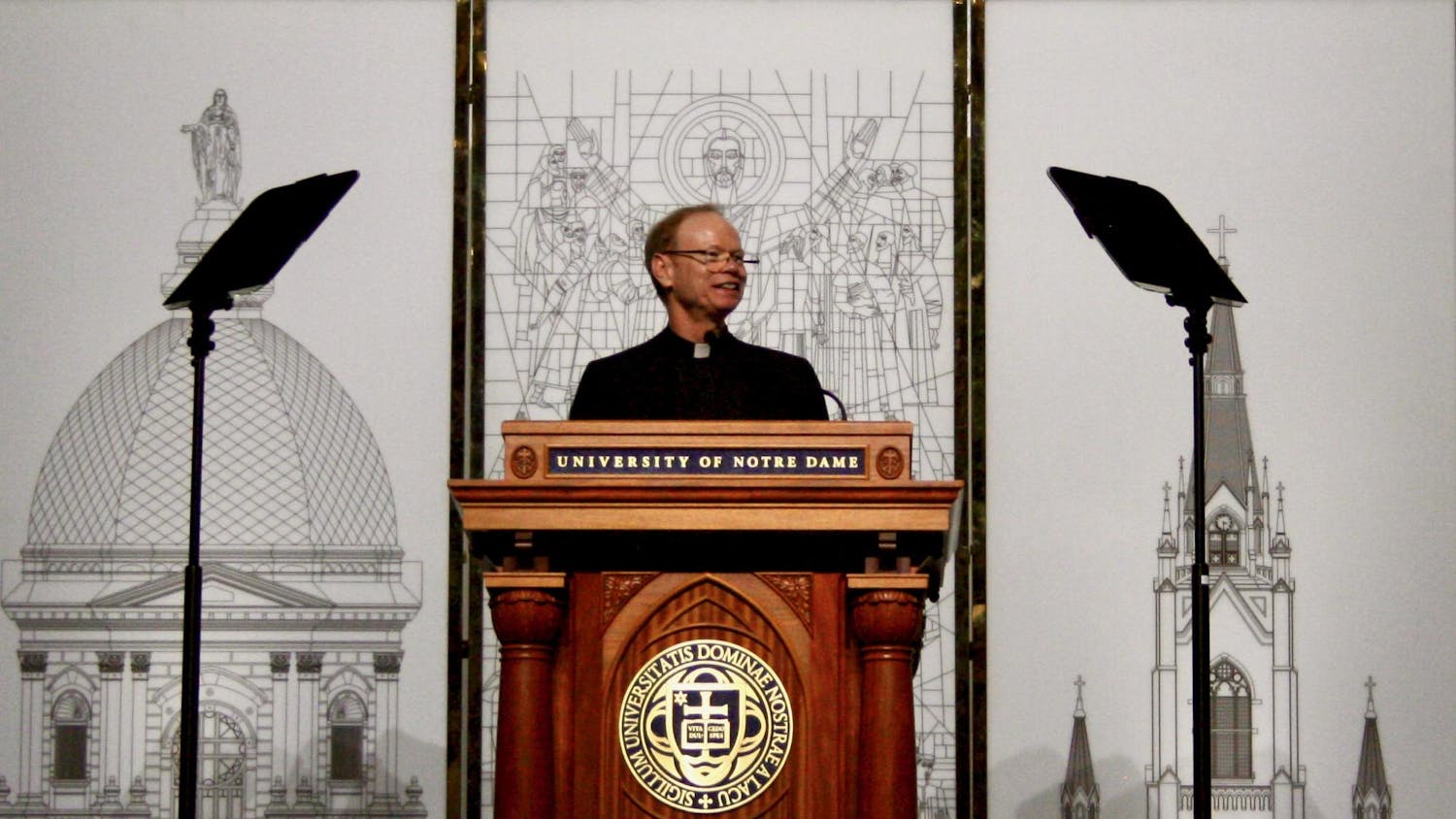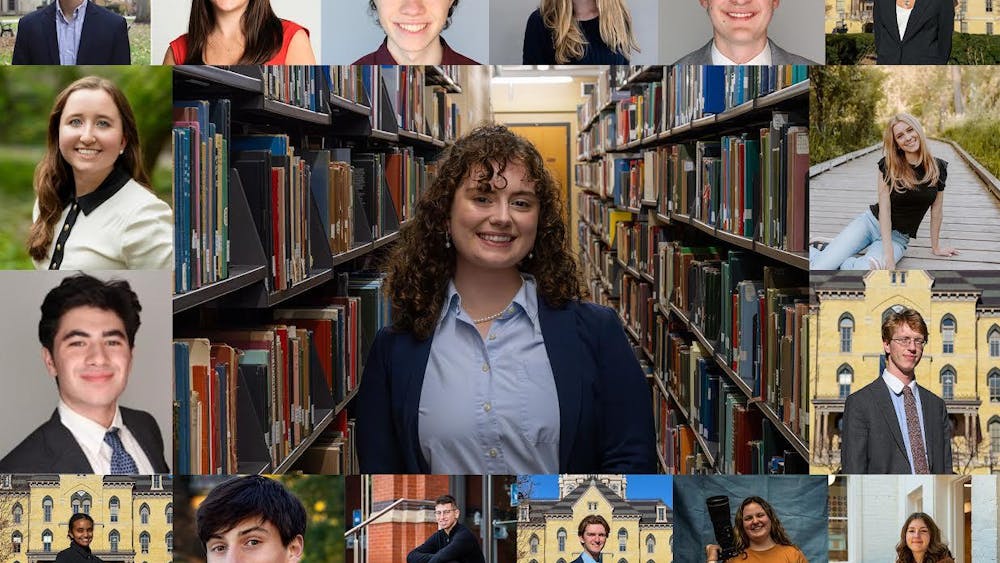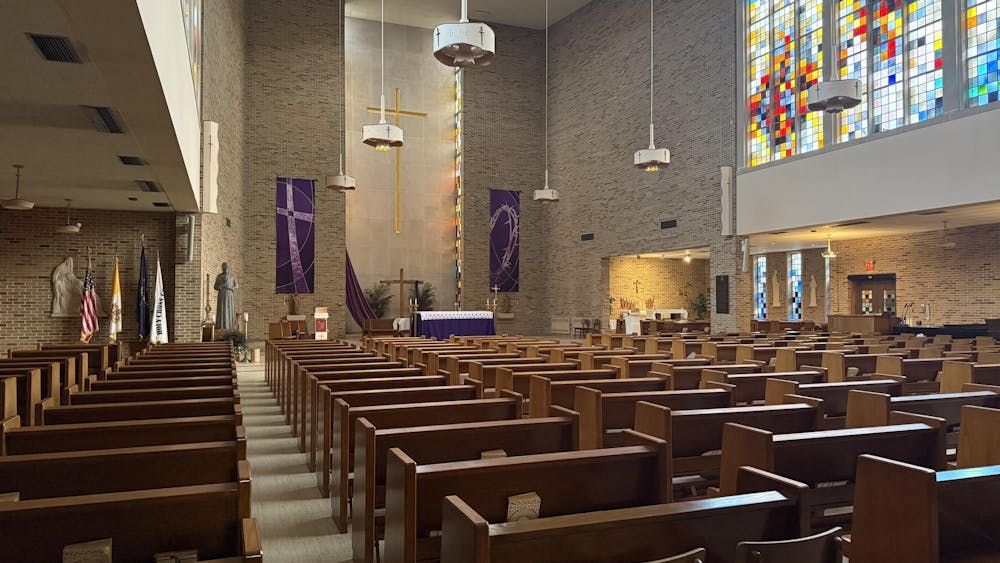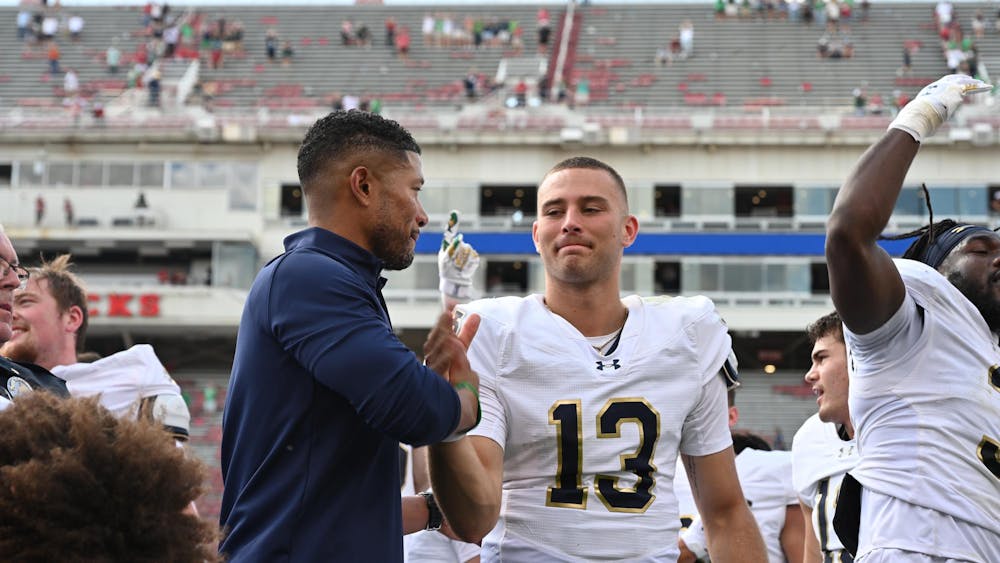Editor's note: This is the second and final installment of a two-part series about Muslim students who attend the University of Notre Dame.
At the beginning of the school year, junior Yasir Malik woke up around 4:30 a.m. every day to scarf down some breakfast before falling back asleep until classes began.
Despite the inconvenience, those five minutes were crucial to his day. That granola bar and bottle of water would be the only thing he consumed until the sun set later that evening — around 16 hours later.
Malik and other Muslim students who practice Ramadan, which took place from Aug. 11 to Sept. 10 this year, abstained from food and drink from sun up to sun down. Despite fasting during a full schedule of classes and homework, Malik said it was a "fun month."
"The only time I ever really noticed it is when I got thirsty," he said. "I never had problems with food. I watch the Food Network while I fast all the time."
According to the Office of Institutional Research, only 12 undergraduate students identify themselves as Muslim at Notre Dame, a university with an undergraduate student body that is 84 percent Catholic.
Yet, Muslim students said it was Notre Dame's focus on religion, in part, that attracted them to attend in the first place.
Sophomore Sadaf Meghani said she never wanted to go to a religiously affiliated school, but when she visited Notre Dame and saw the presence of religion on campus, she changed her mind.
"I came here and there were crosses in all the classrooms and statues everywhere," she said. "You would think it would turn me against coming here, but everywhere you went there was the reminder of faith and religion."
Malik also said the religious presence on campus was a positive factor for him.
"I've always been a fan of just spirituality in itself," he said.
Junior Hiba Ahmed said Catholicism and Islam share many beliefs, including the creation stories, the idea of giving to the less fortunate, and the belief in prophets. Muslims recognize Jesus as a prophet, but not as God.
"We believe that everything he did, he actually did except he's not God," Ahmed said. "All those miracles he did, they are miracles for us too."
Malik said the similarities between Islam and Catholicism make it easy to relate to other students.
"The whole idea of just being a good person everywhere you go," he said. "It's definitely not hard to relate to people here."
Meghani said she enjoys Notre Dame students' interest in religion, even though it is not her own religion.
"My roommates and my friends, they go to [dorm] Mass and they celebrate Easter and they do things like that," she said. "We're all really faithful. I think it's more about faith than it is about religion."
Meghani said other students often question her belief in the prophet Muhammad — some ask because they are curious and others ask to attack her belief. But she said this has made her a stronger Muslim.
"It puts my faith on the spot where I have to reason through things, and that's really helpful," she said.
In general, Meghani said Notre Dame students are tolerant of her religion.
"I think people here are pretty open-minded. It would be better if people were a little more open-minded," she said. "But at the same time, you can only ask so much."
For Malik, his religion and the associated behavior — fasting during Ramadan and abstaining from alcohol and dating — have not been an issue at Notre Dame.
"[Notre Dame students] are the most tolerant college students you'll find anywhere because religion is so important to them," he said.
Malik told his friends that he doesn't drink once when he first met them and "it's never come up again."
Despite Islam's strict rules regarding alcohol and dating, Ahmed can enjoy going to parties with her friends and said she is not offended that other students drink or date.
"I think anything related to how you spend your time on the weekends and what you do is a very personal choice," she said.
But being Muslim, and a minority, at Notre Dame is not without its drawbacks.
"Before I came here, I was hoping there would be a closer knit Muslim community because that's how my parents were raised and that's how I was raised," Meghani said. "Then I come here and it's like, oh my gosh, ... what am I supposed to do?"
Though the Muslim Student Association (MSA) exists on campus, it has only three active members, including Malik and Ahmed.
"We're all juniors," Malik, vice president of MSA, said. "Next year is our last year here. I don't know what we're going to do."
Another issue is that the dining halls do not provide halal meat, which is the Muslim version of kosher meat, Ahmed said. It is slaughtered in a way that causes minimal pain to the animal and a prayer is said before the animal is killed.
As a result, Malik consumes a vegetarian diet when on campus. He said he does not expect the dining hall to accommodate the very few Muslims on campus, but he misses his mother's spicy, traditional cooking.
"I've never regretted a day that I come here, except for the days I have nothing to eat in the dining hall," he said with a laugh.
Ahmed recognized that she stands out as a Pakistani and a Muslim at this predominantly white, Catholic university, but said that doesn't mean she doesn't fit in.
"I feel really, really welcome," she said. "I look back on it and I know this is where I'm meant to be for my college experience."









